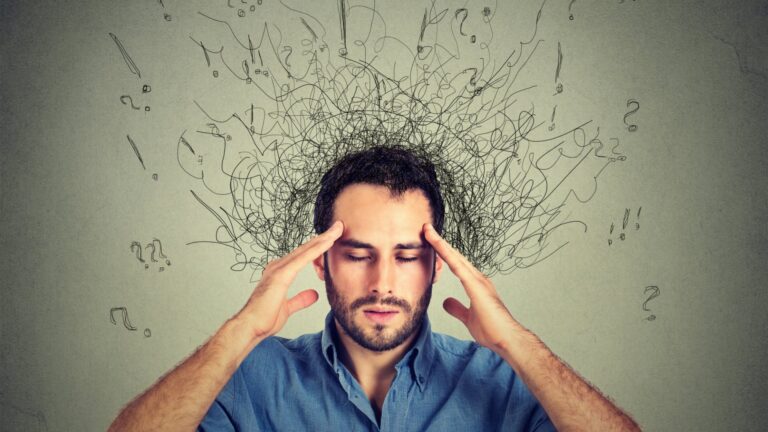
Do you feel like you are losing concentration? Quest+ brings you the next article in the “Concentration” series Is your concentration being compromised?
As you read in the previous blog what is concentration? Let us find out what are the factors affecting your concentration and how can we get rid of them.
Sometimes it seems that our concentration is under attack from all sides. In fact, concentration is affected by both internal and external or environmental factors. If you want to learn how to improve focus and memory.
“It’s not just about my productivity. I’m also finding it difficult to read novels and books that I enjoy or do hobbies that require some level of mental energy.”
Factors Affecting Concentration
Distraction :
During the process of doing something, we are bombarded by a constant stream of information, whether new or old. Researchers have found that our brains are so open to distraction that simply looking at our smartphones reduces our ability to concentrate. We continually assess whether information is useful, sufficient or meaningless. The overwhelming amount of information hinders our assessment of whether we really need more information to make decisions.
Inadequate Sleep:
Scientists have found that lack of sleep can reduce alertness, slow down thought processes, and reduce concentration. You will find it more difficult to concentrate and may become confused. As a result, your ability to perform tasks, especially those related to logic or reasoning, can be severely affected. Persistent poor sleep further affects your concentration and memory.
Inadequate physical activity:
Have you ever noticed how vigorous exercise makes you feel more relaxed and energized throughout the day? When you don’t do physical activity, your muscles can become tense. You may feel tightness in your neck, shoulders and chest, and this type of persistent, low-level discomfort can affect your concentration.
Whatever work you do, do it with full concentration. Never leave a task without completely finishing it. You must train yourself to work at hand with a complete one-point. …restraint in desires and activities, renunciation of objects, solitude, silence, discipline of the senses, destruction of lust and greed, control over anger, not mixing with undesirable persons…all these help in increasing the power of concentration. Let’s go a long way.
Eating habits:
What we eat contributes to how we feel throughout the day, including our mental acuity and clarity. If we do not fuel our brain with proper nutrients, we start experiencing symptoms like memory loss, fatigue and lack of concentration. Low-fat diets can ruin focus because the brain needs certain essential fatty acids. Other restrictive diets can negatively affect concentration by not providing the brain with essential nutrients or by causing feelings of hunger, cravings, or unease.
Environment :
Depending on what you’re doing, the environment can affect your focus. Obviously, too high a noise level is a problem, but many people also have difficulty concentrating when it’s too quiet. It’s not just the overall noise level, but the type of noise that matters: The high-energy, anonymous hum of a coffee shop can bring focus, while the overheard conversation of two co-workers derails it. A favorite song has you singing along quickly, happily distracted, while a less distinctive instrumental can keep you on task. Too bright or too dim light can affect your vision. Too hot or too cold a room creates discomfort.
All these elements can affect your concentration. Happily, they are all addressable as well.
Terms of concentration
If you often can’t focus your thoughts and are experiencing persistent concentration difficulties, it could be a sign of a cognitive, medical, psychological, lifestyle, or environmental cause. Depending on the cause, you may have to temporarily accept that you have poor concentration and learn some tricks to minimize the effects. If you need help with concentration and you feel that your difficulties go beyond the list above, consult a professional.
If you find yourself forgetting things easily, your concentration may be lacking. Your memory sometimes fails, you lose sight of articles, and have difficulty remembering things that happened some time ago. Another way that your concentration may be cognitively impaired is if you find that your mind is constantly thinking about too many things due to anxiety or important events. When thoughts and issues intrude into your mind, demanding attention, it prevents effective concentration.
Psychological
When you’re feeling sad and depressed, it’s hard to concentrate. Similarly, when you are recovering from the loss of a loved one or experiencing anxiety during bereavement, you may have difficulty concentrating on any one task.
Medical
Medical conditions like diabetes, hormonal imbalance and low red blood cell count can affect our concentration. Some medicines can also make you drowsy or drowsy and severely impair concentration.
Environment
Poor working conditions, shared spaces, and intense or negative work dynamics can also contribute to a lack of concentration. When we are experiencing burnout or stress from work or personal life, emotional exhaustion can make it difficult for us to concentrate. Similarly, the environment can create discomfort in our bodies with influences we are aware of (heat, light, noise) and others that are not fully registered (stress, negativity, surveillance).
Lifestyle
Fatigue, hunger and dehydration can derail concentration. Lifestyles that include too many skipped meals, rich foods, or excessive alcohol consumption can challenge our memory and ability to concentrate.
You must have a genuine and intense thirst for God-realization. Then all the obstacles will be removed. Then concentration will be very easy for you. We hope and pray that you understand this and deal with it properly in your life, to make it better.
Will share with you the ways to increase concentration in your next blog.
@aditya : News Quest
